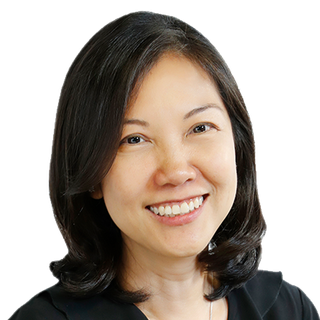Singapore has room for new derivatives exchanges
As investors increase exposure to Asia, they will need Asia-centric risk management tools across equities, currencies, commodities: MAS

Singapore
SINGAPORE, home to two derivatives exchanges and a third coming onboard in May, has room for new exchanges given the insatiable appetite for better risk management in a volatile world.
More importantly, as investors increase their exposure to Asia, they will need corresponding Asia-centric risk management tools across various asset classes - equities, currencies, commodities, the Monetary Authority of Singapore (MAS) said.
"The pie is growing bigger. As new exchanges set up in Singapore, they can also create new trading ecosystems which add to existing marketplace,'' an MAS spokesman told The Business Times.
For example, as the Chinese-backed Asia Pacific Exchange (Apex) prepares for launch in the second quarter, the regulator has received interest from new brokerages, including a few from China, to set up in Singapore as well.
Some of the Chinese brokers setting up shop in the city-state include Guotai Junan International Securities (Singapore); Soochow CSSD Capital Markets (Asia); CGS-CIMB Securities (Singapore) - a joint venture between China Galaxy Securities and CIMB when the former entered the Singapore market; and HGNH International Financial (Singapore).
"This brings new liquidity and players into our ecosystem," the MAS spokesman said. "The expanded marketplace serves both new and existing exchanges as well. In addition, as the pie grows, existing and up-and-coming exchanges in Singapore have plans to carve niches and launch innovative derivative products to better meet regional trading and hedging needs.''
Singapore Exchange (SGX), which is already home to Asia's most traded offshore contract, the FTSE China A50 index futures, will be adding more currency pairs to its Asian foreign exchange suite.
The local bourse is already a key risk-management centre for customers with exposure to Asian equities risks and the world's biggest offshore market for Asian equity derivatives. It is also constantly looking to expand its buffet of offerings in its existing over-the-counter (OTC) commodity cleared swaps and liquefied natural gas (LNG) futures.
"Because of the institutional nature of the derivatives business, it is clearly more global. There is global capital movement,'' SGX chief executive officer Loh Boon Chye said.
"Singapore is a vibrant financial centre. That's why you see newer participants (coming) into our financial markets in exchanges. That speaks of the opportunities and potential that people see. Clearly, the tide is rising. I think new players will bring new participation and that's good,'' he said.
Apex, which will be Singapore's third derivatives exchange after SGX and Intercontinental Exchange, will initially launch US dollar-denominated physically delivered palm olein futures. It intends to offer at a later stage futures and options contracts covering both commodities and financial derivatives products. These will include agriculture, energy, petrochemical, metal, interest rates and stock indices, to meet the unserved demand in Asia.
While the region is the world's largest consumer of a range of commodities from iron ore to soybeans, it remains a price-taker, and does not call the shots in the prices of the raw materials it buys. Prices are fixed in Western markets, like the London Metals Exchange and CME Group. Apex wants to change that by developing global commodity benchmarks here in Asia.
"It is my dream to build up an international market and establishing products that could be global benchmarks," said Eugene Zhu, founder and chief executive officer of Apex.
"It's a pity that contracts in China can't be real global benchmarks as foreigners aren't able to trade directly there, even as volumes are quite high now."
In past years, the race among exchanges favoured product innovators who brought out new instruments for trading and portfolio management. But looking ahead, experts say the race will be partial to those who can help squeeze ever-more productivity out of scarcer capital.
Today, SGX offers cross-margin operational and capital efficiency across asset classes in equity, currency and commodities. This allows traders to access all Asia-centric OTC and exchange-traded products from one location.
An investor will need to put up less margins from trading these correlated instruments, such as offshore yuan and A50 futures on SGX, as opposed to trading them disparately on different platforms. There is potential for liquidity to progressively move to a single platform where investors and traders can maximise their collateral utilisation.
"That's capital efficiency . . . That's why we always introduce different asset classes and different products,'' said Mr Loh, adding that there would be more such offerings. "Foreign exchange will be one of those where we add more areas.''
Well-connected to Asean and the hinterland, Singapore has emerged as the physical beachhead for exchanges looking to launch derivatives products in Asia, partly because of its relatively low tax regime and its English-based legal system as well as extremely low political risk, compared with competing Asian financial centres such as Hong Kong.
BT is now on Telegram!
For daily updates on weekdays and specially selected content for the weekend. Subscribe to t.me/BizTimes
International
Thailand to appoint former energy executive Pichai as finance minister, sources say
Consumer gulf widens as demand for premium and budget foods grows
‘To the Future’: Saudi Arabia spends big to become an AI superpower
Malaysia ex-PM Mahathir facing anti-graft probe in a case involving his sons
Overcrowded Venice introduces first payment charge for tourists
South Korea readies new system to detect illegal short-selling
